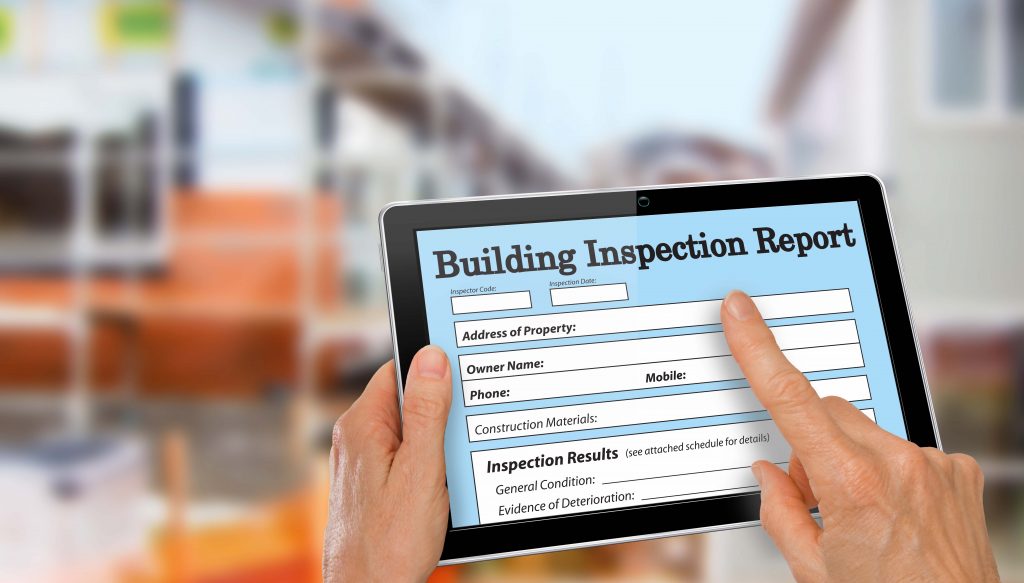
Building and Pest Inspection Condition – Explained
It is likely that your contract will be subject to the Building and Pest Inspection condition. This means that the contract is not fully unconditional (i.e. not completely final), until this condition is ‘satisfied’.
This condition allows the Buyer to get a licensed inspector to run a building and pest inspection of the property.
And, if the buyer is not ‘satisfied’ with the inspection report, the Buyer may choose to terminate the contract.
For standard Queensland conveyances, the Buyer has until 5pm on the condition expiry date to tell the Seller whether they are ‘happy’ with the inspection. If this notice is not given to the Seller by 5pm on the condition expiry date, the Seller gains the the right to terminate the contract. (Although may choose not to)
Therefore, time is important and essential.
Building and Pest Inspection – Further explained
The inspection usually has two parts – (1) the building inspection, and (2) the pest inspection.
(1) Building inspection is the visual inspection of the property.
It is to identify any problems, issues or hazards within or surrounding the property.
Following the completion of the building inspection, the inspector will provide a report which highlights any major (or minor) defects of the property.
The report would also provide advice and recommendations on improvements and steps for rectification of those defects.
(2) The Pest inspection is the assessment of pests.
It is an assessment as to whether there is an infestation of termites, borers and wood-decay fungi, and whether there is damage arising from such infestation.
The Inspector would include their observations into the Pest Report. Theil will provide an expert opinion on the risks of possible pest infestation and damage. It will also include their recommendations for future pest management.
Quite often, both the building inspection and the pest inspection are done by the same inspector on the same day.
How to organise the Inspection?
To properly inspect the property, the Buyer usually directly engages a licenced inspector.
We will very often recommend a few reputable inspectors (we don’t receive any fees from them) to our client. Or, the real estate agent may also be able to refer a few inspectors which they often use.
For overseas clients, we will organise an inspection on their behalf and attend inspection if necessary (with a reasonable additional cost).
The inspection will happen at the property. The real estate agent will quite often attend the inspection to open the doors for the inspector to go in.
Notification after the inspection – Buyer to notify Seller
Commonly, it takes 24-48 hours for the inspector to generate the report (depending on the inspector). They would then provide a copy to the Buyer and also the Buyer’s solicitors.
Once the Buyer has reviewed the inspection report, the Buyer will have to instruct the solicitor with one of the following:
(1) Satisfy the condition –
Meaning the Buyer is happy with the results and wants to proceed with the purchase; or
(2) Waive the Condition –
Where the Buyer, wants to give up their rights under the condition, and proceed with the purchase; or
(3) Terminate the Contract –
Meaning the Buyer is unhappy with the report’s results and want to end the Contract and get back their deposit.
Negotiation after the inspection – Repair defects
If the Buyer is not completely satisfied with the inspection results, but would still like to purchase the property, it is not uncommon that the Buyer’s solicitors will negotiate with the Seller’s solicitors to either:
(1) Request for a price adjustment –
This is for an amount agreeable by both parties, often based on quotations for defects obtained by the Buyer; or
(2) Request for repairs of the defects –
This is to be carried out before a certain date agreeable by both parties.
Remember: Time is important and essential!
Having said this, the Sellers do not have any obligation under the contract to agree with these requests. This will be open to both parties, through their solicitors, for negotiation.
In any event, all these negotiations should happen before the condition expiry date.
This is the reason why the Buyer should carry out the inspection as soon as they get the contract. It is important that the solicitors have enough time to carry out those negotiation.
Terminating the Contract under the Building and Pest Inspection Condition
If the Buyer is not happy with the Building and Pest Inspection, the Buyer may terminate the contract, provided that it is reasonable.
The Buyer must act reasonably. But, what is “reasonable”?
Yes, it is often quite vague for many people what’s reasonable and what’s not.
When determining what is reasonable, the Buyer must take into account a range of factors, for example, among many other factors:
- the property’s age;
- quantity and severity of each issue raised;
- whether price was negotiated.
Major structural damage or pest infestation would be typically reasonable reasons to terminate the contract.
If the Buyer acts reasonably to terminate the contract under the Building and Pest Inspection condition, the Buyer is entitled to a refund of the deposit. Your solicitors would be able to provide legal advice in relation to this, according to your own situation.
More questions?
Contact our Conveyancing Team if you have any concerns or queries regarding the Building and Pest Inspection Condition, if you have any other property questions!
Our office number is (07) 3344 2888. Or, email us at info@timeslawyers.com.au.
Understand more about QLD Conveyancing
Visit our other articles to learn more about Conveyancing:
Building and Pest Inspection – General overview
